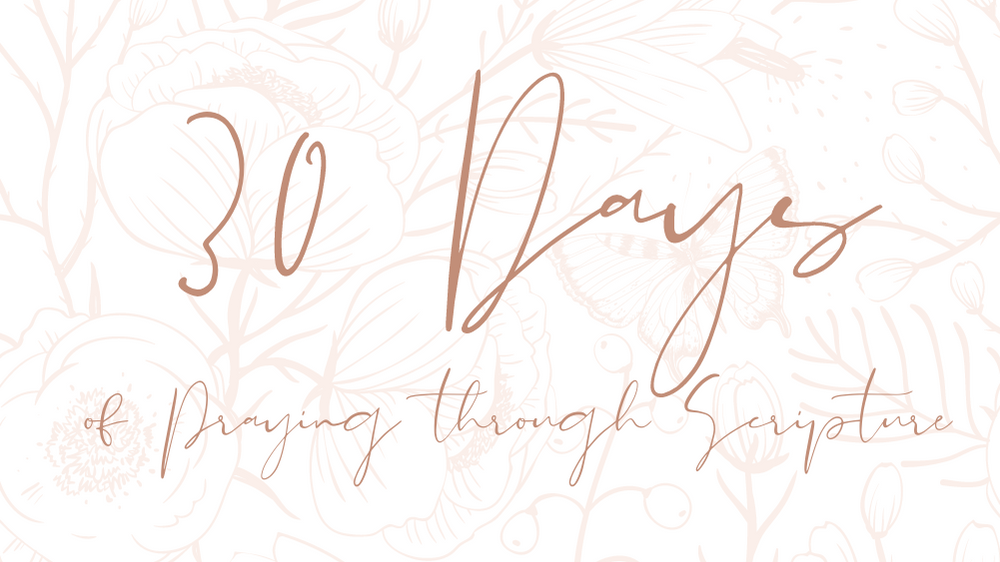by Kiersten Mehl on March 22, 2022
You might be asking, “Is simply reading the Bible not enough?” Of course it is enough. You should read the Bible regularly to get to know God’s story and be constantly reminded of his will for your life. Reading the Bible will put you in a position to hear from God, be led by God, and be transformed into his likeness.
Then why, you might ask, do we need study methods? Because studying the Bible will help you become Bible literate. Being Bible literate not only means that you know the characters and their stories, know the themes and the commands, know where to find various stories and verses, but you can also identify Bible truth from statements that may sound like they came from the Bible. We need to know what we believe and why we believe it in order to stand firm in our faith in every circumstance. Studying the Bible in pursuit of Bible literacy will direct you toward proper understanding of God’s Word and imprint his Word on your hearts and minds in a lasting way.
One additional reason to become Bible literate, is that it produces passion for God and his Word. The more you know, the greater you can love. Through the act of studying the Bible rather than simply reading it, you’ll begin to find intricacies in God’s Word that will give you a deeper understanding of God and his character. If you have felt bored or confused when reading the Bible, it’s probably because you’re not reading it to become Bible literate and your reading strategies haven’t been very effective.
I’d like to share with you some basic steps that you can take when reading scripture that will transition you from simply reading to more effectively studying the Bible. There are other ways and more extensive ways you can go about your Bible study, but for now, let’s start here and see where this gets you on your journey to Bible literacy.
Step 1. Pray that God would speak to you and help you understand the passage you’re about to read.
Step 2. Read the passage.
Step 3. Observe the passage and prayerfully answer the question: What does this passage literally say?
In working to answer this question, you can consider the following:
- What would the original audience have observed in this passage?
- What does the author intend me to catch?
- How do other Bible translations of this passage impact my observation of what was stated in this passage?
- Are there repeated phrases, words, or ideas that I should pay attention to?
- Is there a particular attribute of God illustrated or celebrated?
- Are there any lists in the passage that I should break down and consider each item individually?
- Are there any words that I don’t fully understand and should look up in a dictionary?
- How does this passage relate to the prior passage or lead into the next passage?
Step 4. Write down any questions that this passage has brought to your mind so you can follow up later with further research.
Step 5. Read the passage again.
Step 6. Interpret the passage and prayerfully answer the question: What does this passage mean?
In working to answer this question, you can consider the following:
- Does your Bible provide any cross-references that you should look at? Cross-references help you identify when the ideas addressed in this passage have been addressed in other biblical passages. How might those passages provide insights to understanding this current passage?
- Break down any metaphors or comparisons used in the passage that might help interpret an idea.
- Consult commentaries to see what others have interpreted from this passage. Remember that these commentators are just humans like you and me. They may have spent more time studying scripture, but their understanding does not carry the same promise of absolute truth that God’s Word carries.
- Paraphrase what you have understood from the passage. Pretend to relate the message of this passage to someone else by restating it in your own words?
Step 7. Write down any questions your interpretation has brought to your mind so you can remember to follow up later with further research.
Step 8. Read the passage again.
Step 9. Apply the passage and prayerfully answer the question: How should this passage change me?
In working to answer this question, you can consider the following:
- What have I learned about God from this passage?
- How does what I’ve learned about God impact my view of myself?
- Were there any commands in the passage for me to obey?
- What should I do now?
Step 10. Write down any action steps that you’ve determined to take because of the passage.
Step 11. Pray God would continue to reveal his truth to you through this passage and that he would shape the way this passage will impact you.
I pray God bless you for your intentional investment in your spiritual growth through Bible literacy.




